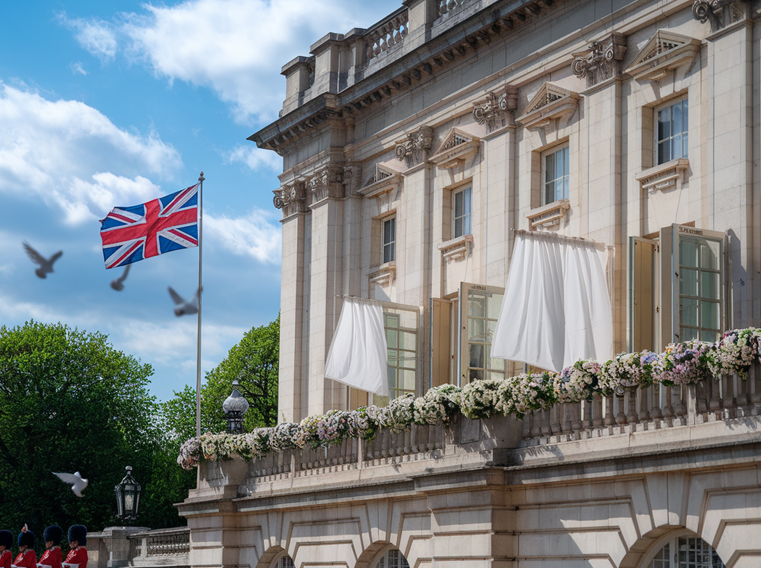From artisanal crepes to rebellious cheesecake waffles, Reading's breakfast rebels are transforming morning meals. These seven spots will revolutionize how you start your day.
As the calendar turns to 2025, the British royal family looks to put a challenging year behind them and embrace new beginnings. At the heart of this fresh start is a significant milestone: King Charles and Queen Camilla's 20th wedding anniversary. The couple, who exchanged vows in Windsor two decades ago, will celebrate their platinum anniversary against a backdrop of hope for the monarchy's future. This jubilant occasion offers a moment of respite and unity for the royal family, potentially setting the tone for a more positive year ahead after recent tribulations.
A Royal Celebration: Two Decades of Marriage
As King Charles and Queen Camilla prepare to mark their 20th wedding anniversary in 2025, the royal family is poised for a celebratory moment amidst recent challenges. The couple, who exchanged vows on 9 April 2005 at Windsor Guildhall, followed by a blessing at St. George's Chapel, Windsor Castle, will commemorate their platinum anniversary with a series of events yet to be announced by Buckingham Palace.
The royal wedding two decades ago was a modest affair by royal standards, reflecting the couple's desire for a low-key ceremony. Attended by about 800 guests, including Prime Minister Tony Blair and other dignitaries, the union symbolised a new chapter for the monarchy after years of controversy surrounding their relationship.
Since their marriage, Charles and Camilla have undertaken numerous royal duties together, championing causes close to their hearts. The King has continued his environmental advocacy, while the Queen has focused on literacy and women's issues. Their joint engagements have showcased a united front, with the couple often praised for their easy rapport and shared sense of humour.
As they celebrate this milestone, the royal family hopes to turn a new leaf after a tumultuous period marked by family rifts and public scrutiny. The anniversary provides an opportunity to highlight the stability and continuity of the monarchy, embodied by Charles and Camilla's enduring partnership.
The Significance of Royal Milestones

The 20th wedding anniversary of King Charles and Queen Camilla carries broader implications for the monarchy and the nation. Royal milestones have historically served as moments of national unity, offering the public a chance to reflect on the institution's role in modern Britain.
This celebration may help to soften public opinion towards the couple, particularly among those who were initially sceptical of their union. Over the years, Queen Camilla has gradually won over many critics through her dedication to royal duties and her support of the King.
The anniversary also presents an opportunity for the younger generation of royals to rally around the senior members of the family, potentially healing some of the divisions that have been widely reported in recent years. Public displays of family unity during the celebrations could go a long way in reassuring the nation of the monarchy's stability.
Moreover, the occasion allows the royal family to showcase their ability to adapt to changing times while maintaining traditions. It may serve as a platform to highlight the monarchy's relevance in the 21st century, emphasising their charitable work and role in promoting British interests both at home and abroad.
As the country navigates post-Brexit realities and global challenges, the royal anniversary could provide a welcome distraction and a boost to national morale. It may also stimulate tourism and retail sectors, with commemorative merchandise and events likely to generate significant economic activity.
A Royal Renaissance: Charting a New Course for the Monarchy
As King Charles and Queen Camilla prepare to commemorate two decades of matrimony, their platinum anniversary heralds more than just a personal milestone. This royal celebration stands as a beacon of stability amidst recent turbulence, offering a unique opportunity for the Windsor family to redefine its role in modern Britain.
The anniversary's timing is fortuitous, presenting a chance to shift public focus from past controversies to future possibilities. It allows the monarchy to showcase its adaptability and relevance in a rapidly changing world. The royal family could leverage this moment to reinvigorate their connection with the British public, particularly younger generations who may feel disconnected from traditional institutions.
Moreover, this celebration could serve as a catalyst for reconciliation within the family, potentially healing rifts that have captured headlines in recent years. A united royal front during the festivities could go a long way in restoring public confidence and affection.
As we look towards this royal renaissance, it's worth considering: How might the monarchy evolve to meet the needs and expectations of a 21st-century Britain? What role can each of us play in shaping a more inclusive and forward-thinking relationship between the crown and its subjects? The answers to these questions may well determine the future trajectory of one of the world's oldest monarchies.